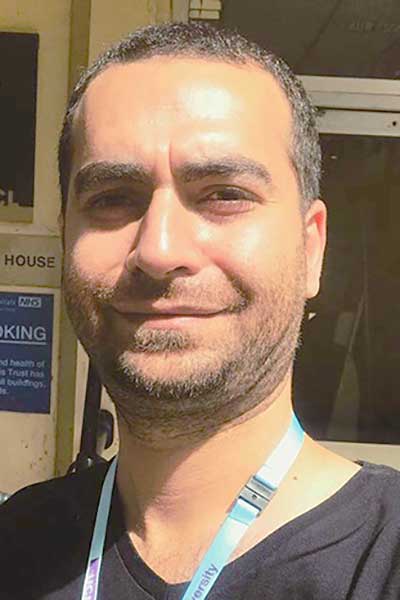
Poster Presenter: Bayram Farisogullari, MD, Hacettepe University Faculty of Medicine, Rheumatology Department, Turkey
Poster Title: Efficacy of Non-pharmacological Interventions: A Systematic Review Informing the 2023 EULAR Recommendations for the Management of Fatigue in People with Inflammatory Rheumatic and Musculoskeletal Diseases
Poster Session C: Tuesday, Nov. 14
What is your poster about?
“It is about recommendations for fatigue management in people with inflammatory rheumatic and musculoskeletal diseases (I-RMDs).”
Why did you decide to investigate this topic?
“Fatigue is recognized as one of the most challenging symptoms to manage in patients with I-RMDs. However, there are no recommendations for fatigue management in people with I-RMDs. This lack of guidance is challenging for those living with fatigue and health professionals delivering clinical care. These 2023 EULAR recommendations provide consensus and up-to-date guidance on fatigue management in people with I-RMDs.”
What are you working on next related to this research?
“My colleagues and I have kicked off a new project on this topic, namely Musculoskeletal Fatigue Across the Life Course: Understanding What Helps and Mapping What Is Missing (METRICS). This project is endorsed and funded by Versus Arthritis, United Kingdom, and is aimed at further assessment on fatigue in people with I-RMDs.”
“Fatigue management should be addressed through shared decision-making and should consider the needs and preferences of people with I-RMDs, in conjunction with their clinical disease activity, comorbidities and psychosocial and contextual factors.”
— Bayram Farisogullari, MD
What excites you most about your work?
“Optimal fatigue management requires a tailored, flexible, and holistic approach. However, there are no recommendations to support people with I-RMDs and health professionals with fatigue management. Acknowledging this current lack of guidance, we convened a taskforce to develop EULAR recommendations for the management of fatigue in people with I-RMDs.
“Following two systematic reviews regarding pharmacological and non-pharmacological interventions in reducing fatigue, EULAR recommendations have been developed to manage fatigue in people with I-RMDs. Central to these are regular assessment of fatigue and shared decision-making about the best management options at that time. Fatigue management should be addressed through shared decision-making and should consider the needs and preferences of people with I-RMDs, in conjunction with their clinical disease activity, comorbidities, and psychosocial and contextual factors.
“These recommendations might impact clinical practice. Routine assessment of fatigue in people with I-RMDs will become more common. Uptake of these recommendations will enhance patient-centered clinical care by managing a prevalent symptom that is a priority for people with I-RMDs.”
What are you most looking forward to at ACR Convergence 2023 in San Diego?
“I look forward to presenting our works, learning more about rheumatologic diseases by listening to outstanding sessions, and meeting and collaborating with new researchers and clinicians.”

Registered ACR Convergence 2024 Participants:
Watch the Replay
Select ACR Convergence 2024 scientific sessions are available to registered participants for on-demand viewing through October 10, 2025. Log in to the meeting website to continue your ACR Convergence experience.
